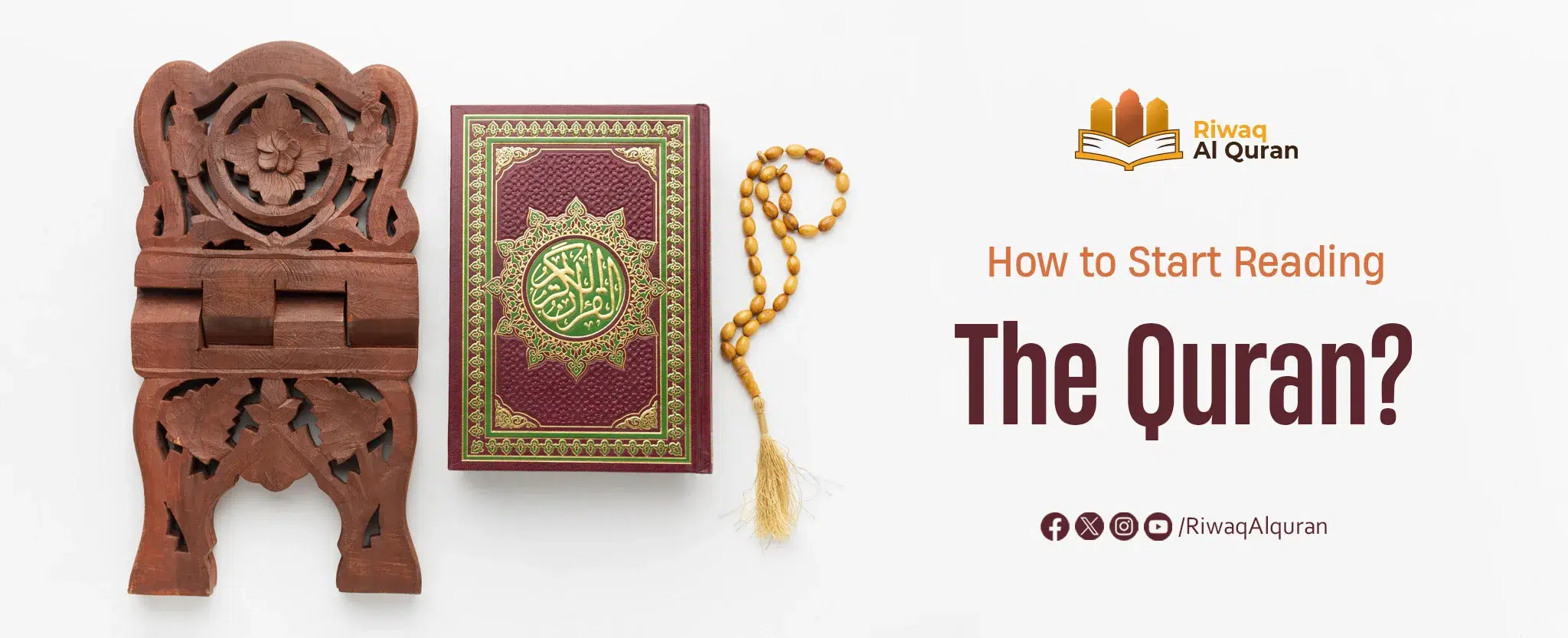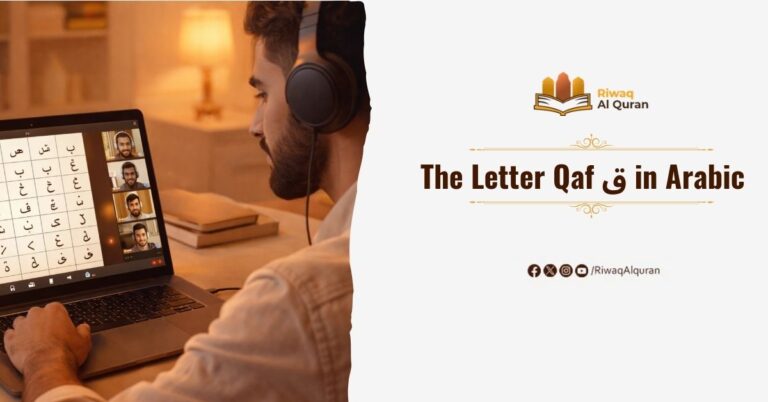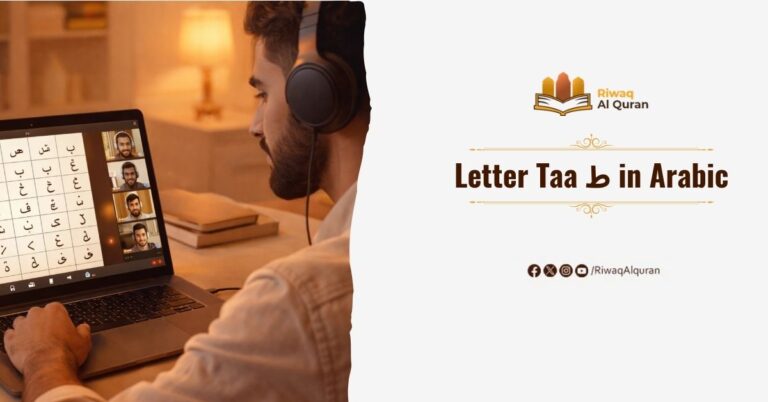To start reading the Quran is a profound step towards spiritual growth, beginning with setting a sincere intention and dedicating scheduled time preferably after Fajr prayers in a tranquil setting with a physical copy of the Quran.
Understanding the contextual background of the Quran’s revelation and reading it in manageable segments while keeping an open heart and mind are essential. While Tajweed isn’t obligatory at the outset, correct pronunciation enhances the reading experience.
Starting from the beginning and gradually progressing through the Surahs is recommended, although exploring stories in Surahs like Yousuf or Maryam can be engaging. Learning Arabic can deepen the understanding, and having a Quran teacher and using a consistent Quran format are beneficial.
Choosing between a hard copy or digital version depends on personal preference, with the goal being to establish a consistent reading habit. Institutes like Riwaq al-Quran offer courses to support Quranic learning, providing guidance and expertise on this transformative journey.
Reading the Quran is an endless journey, and like any journey, it starts with a first step. That’s to pick it up and start. You may have taken the decision to start your journey with the Quran, but don’t know how … don’t worry, we’ve got you covered.
Table of Contents
How to start reading the Quran?
To begin reading the Quran, start with a sincere intention and schedule a regular time for reading, ideally in the calm environment of a mosque. Keep a copy of the Quran handy, both in English and Arabic, and familiarize yourself with its context.
Approach reading in segments, focusing on understanding rather than finishing the quran quickly, and be patient with any challenges. Seek refuge with Allah before starting and remember that true understanding comes with His guidance.
While reading the Quran you will have countless questions answered and many others pop up…. that’s not a problem in you or your understanding, it is simply because the Quran has a lot to offer in limited pages.
Read The Quran to understand as much as possible about its core message and don’t worry, you will come back to it again!
Here are some general pointers to start reading the Quran:
- Start With The Intention (Read the Quran For Allah and seek His guidance)
- Set a scheduled time to read the Quran (preferably: Early morning, After Fajr)
- Pick a location you know is calm and relaxing where you can read (preferably: The Masjid)
- Get the Nobel Quran ready and keep it handy (English Sahih International, Arabic Madiah printed format)
- Learn about the Context in which the Quran was revealed. (Get familiar with Sirah and know how to search for Tafseer)
- Read the Quran in segments, it has been revealed in segments.
- read to understand not to finish. (Don’t focus on how much time you are taking but what benefit did you gain)
- Don’t be frustrated if there are things you don’t understand. (The treasures of the Quran open up with time.)
- Open your heart and mind and let the Quran Change you. The Nobel Quran is not like any book you have ever read.
- Know that learning the Quran is a continuous journey, it doesn’t end with reading it once
- have patience and focus on learning something new every time (Sabr is a crucial attribute for learning)
- Finish what you start. (true benefit comes with discipline and resolution)
Remember that before Reading the Quran we are instructed to seek refuge with Allah from the accursed Devl and start in the name of Allah, asking for His Aid and guidance. It is important to remember that it’s only by the Aid of Allah we can learn and by His Aid we are guided.
Should we learn Tajweed before starting to read the Quran?
Tajweed is not a must before starting reading the Quran. Learning Tajweed is required to perfect the reading of how the prophet peace be upon him said the words.
Evidence is Tajweed doesn’t affect the meanings, what affects the meanings is correct pronunciation and annotation of words.
You must observe the correct pronunciation of Arabic letters if you want to read the Quran. The letters and grammatical annotation of them must be observed, where pronunciation mistakes affect the meanings.
Prophet Muhammed peace be upon him said: (he who reads the Quran and falters in it, finds it difficult for him, will have two rewards.) Sahih Muslim
The ruling on Tajweed depends on your ability, if you know it, you should observe it while reading to the best of your ability.
If you want to learn Tajweed, Riwaq Al-Quran Institute has professional classes with native speakers to make learning and Reciting Tajweed a breeze for you. Learn Tajweed Now!
Which Surahs of the Quran to start with?
In the first reading of the Quran, go from beginning to end, From Surah Fatiha to Surah Al-Naas.
This might sound intuitive, but The Quran can be started from any Surah, yet the best sequence is its normal arrangement.
Surahs of the Quran to start with Memorization
Reading from back to front is helpful if you are memorizing. The last chapters are exceptionally short and easy to memorize and gradually increase in length as you go to the beginning.
Surahs With Stories To Start with If You love Stories:
Also, if you are a curious person, start reading the Stories In SurahsLike:
- Yousuf
- Hud
- Younus
- Ibrahim
- Qasas
- Al-Aaraf
- Al-Kahf
- Mariam
- Taha.
These stories are very profound and teach the basic principles of Islam and its core message. Stories of old take up a big part of the Quran and for good reason; that’s because it’s a good tool to learn and understand.
How to start reading the Quran in Arabic
Reading the Quran in Arabic, its original form, is massively more beneficial than reading a translation of it. Unfortunately, it can be a challenge for those who don’t know Arabic language, but nothing is hard with the aid of Allah (God almighty). Here are the best steps to start reading the Quran in Arabic:
1. Start Learning Arabic
Learning Arabic doesn’t have to be hard, if you have the right support, it can be a very enjoyable journey.
Riwaq Al Quran Institute gathered for you all the resources you need. Arabic lessons, tested Textbooks, and personal tutors.
- Enroll In Arabic Courses
This can not only encourage and simplify the learning journey for you, it also saves you a lot of time and effort, but pay attention time and effort are required to gain anything in this life.
Put the time and effort in, and then you will learn and move forward.
Riwaq helps you so you can enjoy the journey while gaining knowledge.
2. Get A Quran Teacher:
Having a mentor to help you learn is greatly beneficial than learning on your own. It is the same for learning the Nobel Quran. Learning from a teacher or a mentor is an indispensable need, especially for the Quran. Even, prophet Muhammed peace be upon him would sit and be taught by Jabriel peace be upon him.
Riwaq al-Quran has tens of qualified Quran Arab tutors who can guide you in your learning journey as they have a solid experience for years.
3. Use Only One Quran Formate:
There are two primary printing formats for the Arabic Quran: Shemerly and Madinah. Although they share identical content, their distinction lies in the page layout. It is crucial to be mindful of the version you choose and consistently adhere to it. While the Quran’s essence remains unchanged, the variance in formatting holds significance, affecting your familiarity with this noble book if you frequently switch between them.
The key to vividly memorizing verses, knowing their precise locations, and understanding specific sections lies in maintaining consistency with one printed version. Many individuals who excel in memorization attribute their success to adhering to a single format, underscoring the importance of stability in enhancing your connection with the Quran.
Should You Start Reading the Quran On Phone Or Form A Hard Copy Quran?
This is a common question if you are starting to read the Quran, and here is the summary of the answer. Get a hard copy of the Quran to read instead of a soft (PDF) copy if you can.
Pros of Reading from a Hard copy Quran:
- It’s a visual reminder of the goal which helps to continue reading (Place it near you somewhere visible and easily accessible)
- It helps greatly with focus and immersion while reading (Disconnect from the world and connect with the Quran)
- It creates a physical bond between you and the book of Allah(This bond usually reminds you of the thoughts and feelings you get when reading the Quran)
Cons of Reading from a Hard Copy Quran:
- The cost and scarcity (You can order a free copy of the Quran online, there are many organizations, depending on your location, may offer it)
- Can’t be read anywhere (This helps to schedule times to read and make it a habit)
Pros of reading a Soft copy Quran:
- Easy access, as it can be easily downloaded and read anywhere.
- Free of charge.
Cons of reading a soft copy Quran:
- Reading on a technical device such as a phone can be distracting.
- The bond you create in the journey of reading is watered down and you don’t feel it as much
- You need active effort to remind you of reading as it can easily be forgotten if reading from a device.
Start Learning Quran With Riwaq al-Quran:
To keep the Quranic Tradition alive, Riwaq Al Quran Institute makes it easy for you to learn the Nobel Quran from Native Arabic speakers with multiple credentials and Ijazas.
Here are a sample of our set of Quran Courses that will be helpful for you:
- Online Tafseer Course: Delve into Quranic meanings with our insightful online Tafseer course.
- Noorani Qaida Online: Learn Quranic basics efficiently through our Noorani Qaida online program.
- Online Quran Recitation Course: Enhance Quranic recitation skills through our expert-led online course.
- Online Tajweed Classes: Master Tajweed rules for beautiful Quranic recitation in online classes.
- Quran Memorization Online Course: Memorize the Quran effectively with our specialized online memorization course.
- Online Qirat Course: Explore diverse Qirat styles with our comprehensive online Qirat course.
- Online Quran Classes for Kids: Nurture a love for the Quran in kids through interactive online classes.


Conclusion:
Embarking on the journey of reading the Quran is a profound step towards spiritual growth, beginning with setting a sincere intention and dedicating scheduled time preferably after Fajr prayers in a tranquil setting with a physical copy of the Quran. Understanding the contextual background of the Quran’s revelation and reading it in manageable segments while keeping an open heart and mind are essential.
While Tajweed isn’t obligatory at the outset, correct pronunciation enhances the reading experience. Starting from the beginning and gradually progressing through the Surahs is recommended, although exploring stories in Surahs like Yousuf or Maryam can be engaging. Learning Arabic can deepen the understanding, and having a Quran teacher and using a consistent Quran format are beneficial.


































